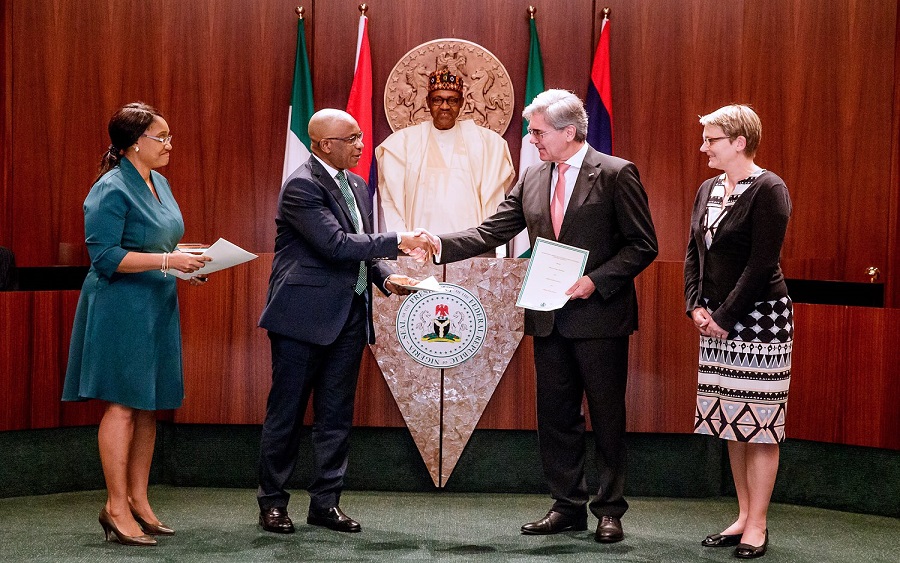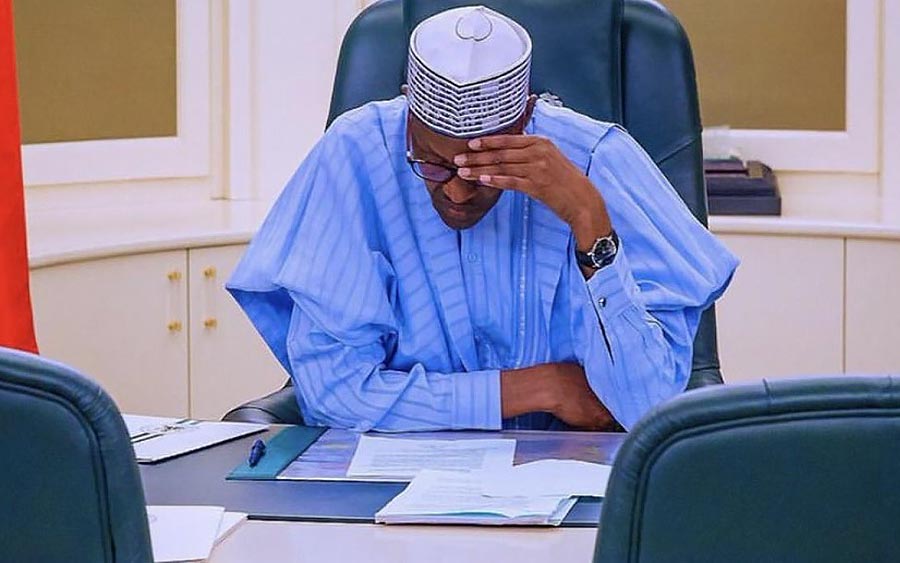In order to execute the recent electricity deal signed by the Federal Government of Nigeria and German-based company, Siemen, Nigeria may spend about €3.11 billion or N1.15 trillion across four major states.
According to the Technical and Commercial Proposal obtained, the Nigerian electrification project which has three phases and is aimed at achieving 25,000 megawatts of electricity in the country by 2025 will require more than N1.15 trillion to execute.
The details: According to the information contained in the technical proposal, the budgetary price for the transmission assets upgrade, which includes 11 containerised substations and 10 mobile substations is €330 million or N113.42 billion.
- Similarly, the cost of the distribution assets upgrade was estimated at €250 million (N85.92 billion). The upgrade would include products and systems for 14 stations and upgrade of 26 substations.
- According to the proposal, the power system simulation which would entail new software licences for the Transmission Company of Nigeria (TCN) was put at €192,000; software M&S for TCN (€182,000); training and technical services support for TCN (€1.35 million); new software licences for 11 distribution companies (€1.41 million); software M&S for Discos (€848,000) and training and technical services support for Discos (€1.81 million).
- Lastly, the cost of system development studies for 25,000MW transmission, sub-transmission and distribution grid capacity was put at €1 million.
The Back Story: President Muhammadu Buhari signed the Nigerian Electrification Roadmap which was presented by Siemens in November 2018. The deal was facilitated by the German Chancellor, Angela Merkel last year, in August.
- The deal was signed in Abuja with the Global Chief Executive Officer of Siemens, Joe Kaeser. The agreement came months after the leading supplier of systems for power generation held several meetings and consultation across Nigeria.
- Speaking about the roadmap deal, President Buhari said, “we are making an important move towards addressing Nigeria’s electricity challenge. Our goal is a simple one: to deliver more electricity to Nigerian businesses and homes.”
Execution Phases: According to the proposal, the second phase of the project execution is targeted at increasing the grid capacity from 7,000MW (expected to be achieved in phase 1) to 11,000MW.
Basically, for the new power generation to support central and northern regions, it was revealed in the proposal that “The Nigerian National Petroleum Corporation is already in the process of developing the Ajaokuta-Kaduna-Kano Pipeline Project and the establishment of power plants in Abuja, Kaduna, and Kano states.”
In order to achieve this, Siemens and other participants will focus on transmission and distribution assets upgrade including the North East Transmission Infrastructure Projects 2; supervisory control and data acquisition for Discos; 40MW embedded power project in Abuja, and gas processing projects to ensure fuel availability.
It was further disclosed that: “Siemens proposes a gas processing facility for 300 million standard cubic feet per day from existing flare gas assets for the generation of about 1,200MW of electricity within 36-48 months.
“The 40MW embedded power project was estimated to cost $770 — $815 per kilowatt, depending on the scope of supply and location, among others, amounting to about $31.68m (N9.72bn).”
The third phase according to the proposal would focus on additional transmission and distribution assets upgrade and large-scale power project in order to increase the grid capacity from 11,000MW to 25,000MW.
The projects will be executed in four states in Nigeria. The proposed projects are 1,350MW in Abuja; 1,350MW, Kaduna; 1,350MW in Kano, and 450MW in Lagos (Agura).
The budgetary cost of the Abuja, Kaduna and Kano projects is an average of €700/kW, while that of Lagos is €600/kW, amounting to about €3.11 billion ( N1.07 trillion).
In the meantime, it was stated that the current estimations are still subject to changes based on additional information on the specific projects, location, financing and contractual terms and conditions.
[READ MORE: President Buhari signs Siemens electricity deal]


















